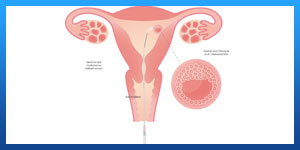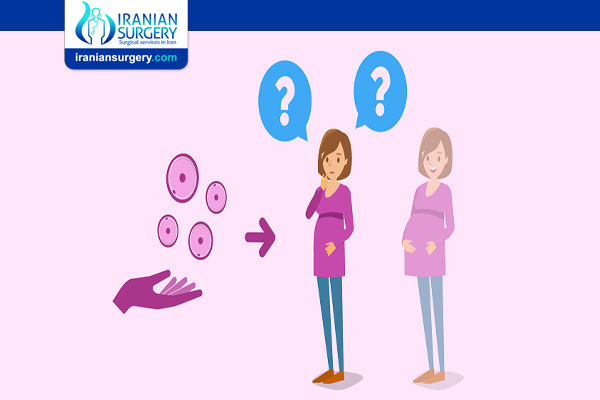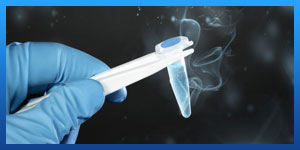How long does IVF with frozen donor eggs take?
How do I prepare for IVF with donor eggs?
What are the chances of getting pregnant with frozen donor eggs?
How does frozen donor egg IVF work?
IVF with donor egg process step by step
The below explanation also assumes you’re using “fresh” eggs and not frozen.

Read more about : Ivf process in Iran start to finish step by step
Read more about : Is Surrogacy allowed in Iran?
Read more about : PGD in Iran
Read more about : PGS in Iran.
Read more about : Ivf with donor eggs process in Iran
Read more about : Sperm Donation process in Iran
Read more about: What is the success rate of ICSI IVF?
Cycle before donation
Once all the legal and financial issues are settled, and the donor and intended mother have completed whatever fertility testing and screening is required for treatment to begin, you’ll start the actual egg donor IVF cycle.
This starts the month before.
The intended mother and donor will need to have their menstrual cycles put in sync.
This way, when the donor’s fertilized eggs are ready for embryo transfer, the intended mother’s uterus will be physiologically ready to accept an embryo.
This means taking birth control pills and usually also injectable hormones that suppress the reproductive system.
Read more about: What is the lowest sperm count for IVF
Treatment cycle
Once the donor and intended mother get their periods, the treatment cycle itself will begin.
The donor will be taking injectable fertility drugs in order to stimulate egg production. Her cycle will follow very closely to a conventional IVF cycle, skipping the embryo transfer.
The intended mother will give herself injections meant to suppress the reproductive system (so the doctor can keep the donor and her in sync.)
She will also take estrogen supplementation. The estrogen will signal the uterus to create a suitable lining.
When the eggs in the donor’s ovaries look ready, the donor will get an injection of hCG. This is also known as a trigger shot. It will start the last stage of egg maturation.
Around this time, the intended mother will start taking progesterone supplementation. Like the estrogen, this helps prepare the uterus for the embryo.
The donor will come into the fertility clinic for the egg retrieval. Egg retrieval is done using an ultrasound-guided needle.
After the egg retrieval is complete, the donor’s active role in the cycle is over. She will be given home care instructions for recovered from the egg retrieval, and instructions on what to do if she suspects she’s developing ovarian hyperstimulation syndrome (OHSS).
That same day of the egg retrieval, the intended father will provide a semen sample. (In some cases, the sample may be prepared and frozen earlier. But it’s usually done on the day of the egg retrieval itself.)
The retrieved donor eggs will be put together with the intended father’s sperm cells. Hopefully, some of the eggs will become fertilized.
After three to five days, the intended mother will come into the fertility clinic for an embryo transfer.
One to two healthy looking embryos will be transferred into the intended mother’s uterus. Any extra embryos will be frozen—or cryopreserved—for a future cycle.
The intended mother will continue to take progesterone supplementation.
About ten days after the embryo transfer, the intended mother will take a pregnancy test to see if the cycle was a success.
Read more about: when is assisted hatching done in IVF
How long does IVF with donor eggs take?
In all, the egg donation process can take about 36-37 days a bit longer than a month. You'll be going in for daily appointments for about 10 days. Your timing may vary everyone is different. the entire process may take up to 4-5 weeks, however, it is highly individual and depends on a number of factors.
How successful is IVF with donor eggs?
Making the rate of successful pregnancies with donor eggs very high. The IVF programme with donor eggs frozen cycle donor egg success rate is 52.3% with clinical pregnancy and 42.3% live birth. The live birth rate for donor egg IVF is 55.9% for fresh embryo transfer and 40.2 percent for frozen embryo transfer. This is the nationally reported average for 2013.
Read more about: IUI and IVF success rates
How do I prepare for IVF with donor eggs?
IVF with donor eggs is a carefully planned process, in particular for the recipient, so that your body is ready to receive the created embryo to maximise the chances of successful implantation. It makes sense to ensure your health is at its optimum before you begin your IVF with donor eggs treatment cycle. This may involve overhauling your diet and lifestyle, or you may find holistic therapies for fertility useful, such as acupuncture.
Everything that goes into your body will nourish your uterine environment and optimize egg donation success, so be sure to balance your pre-pregnancy diet as the best preparation for embryo implantation.
Read more about: IVF with frozen donor eggs process
What is the process of receiving donor eggs?
In order to be able to donate eggs, the donor undergoes a treatment cycle of In Vitro Fertilisation (IVF); full details of which are available in our IVF Information Leaflet. IVF treatment essentially entails a series of different daily injections for the donor, in order to stimulate the production of eggs within the ovaries. When the eggs are mature, the donor undergoes the procedure of ‘egg collection’, which is a minor operation involving aspiration of eggs from the ovaries via a sharp needle inserted into the ovaries through the vagina. On average, 8 to 10 eggs are collected during each procedure, but the number of eggs varies hugely, and is dependent on the response of the donor’s ovaries. Donated eggs are then subjected to an insemination process in the laboratory, using the recipient husband’s/partner’s sperm.
Read more about: IUI and IVF side effects
10 common questions about IVF with donor egg process step by step
Related Posts:
- What Is the Best Age for an Egg Donor?
- Should You Become an Egg Donor?
- IVF With Donor Egg At 45
- Surrogacy With Donor Egg
- Before Donor Egg Transfer
- IVF With Donor Egg and Sperm
- IVF With Donor Egg Timeline
- Donor Egg Risks and Complications
- Difference Between Egg Donor and Surrogate
- Disadvantages Of Using Donor Eggs




